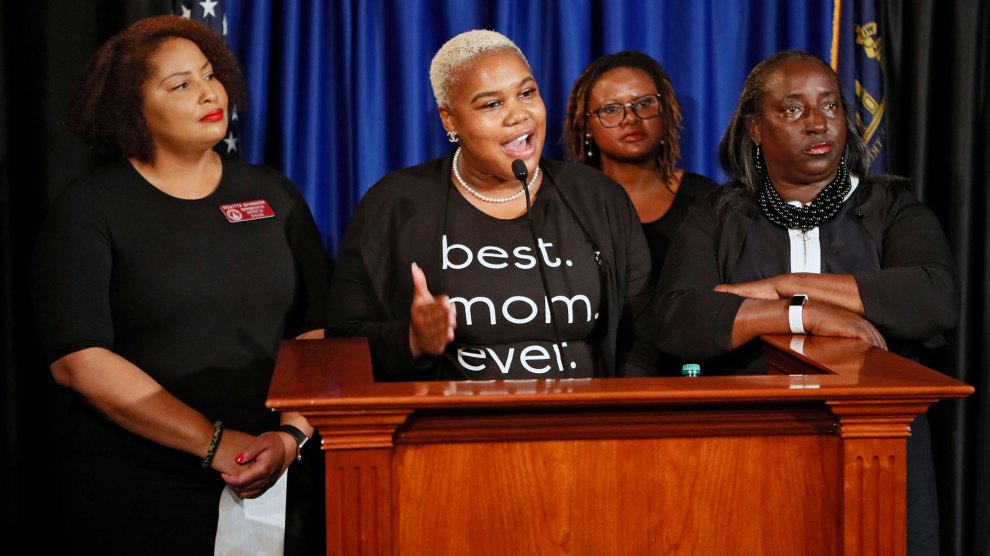
studiostoks/Shutterstock
On Wednesday, Alabama Governor Kay Ivey signed the most restrictive abortion ban in the country, almost completely outlawing doctors from performing the procedure, even in cases of pregnancies resulting from rape or incest. It’s the latest state to ban early-stage abortions, marking a clear break from the past when such bills were rarely put into law. In fact, Republican lawmakers around the country are pushing extreme abortion restrictions through statehouses in unprecedented numbers—an aggressive effort to undermine or overturn Roe v. Wade once legal challenges to the new laws make it to the increasingly conservative Supreme Court.
So far in 2019, seven states have passed laws to limit abortion well before fetal viability, which is somewhere around 24 weeks, though all of the laws have yet to take effect or are held up by the courts. Just last week, Georgia Governor Brian Kemp signed a bill into law banning abortions anytime time after a “fetal heartbeat” is detected, which can be as early as six weeks and before most women know they’re pregnant. Kentucky, Ohio, and Mississippi also passed their own “fetal heartbeat” abortion bills, while legislators in Arkansas and Utah have agreed to ban the procedure after 18 weeks. The Missouri Senate, meanwhile, is currently debating an omnibus abortion bill that already passed the House and includes a “fetal heartbeat” ban, while Louisiana’s own six-week abortion bill is about to pass its second legislative chamber.
Mother Jones looked at the gender breakdown in these nine state legislatures and found a common thread: All have striking gender imbalances. Each legislature—with the exception of Georgia—has a lower than average percentage of women serving in its chambers. The national average is about 29 percent, but in Mississippi, Louisiana, and Alabama, women make up just 16 percent or less of the states’ legislators. Sometimes that means as few as 22 women are serving, as is the case in Alabama and Louisiana. While better, Georgia is still just a hair above the national average, with women accounting for 31 percent of the total legislators. But as one Georgia Democrat put it:
Just in case anyone forgets who really pushed this anti-woman, anti-doctor, anti-healthcare bill. A picture is worth a thousand words. #HB481 pic.twitter.com/vSrEDOOZbO
— Jen Jordan (@senatorjen) May 7, 2019
Here’s how it breaks down:

















